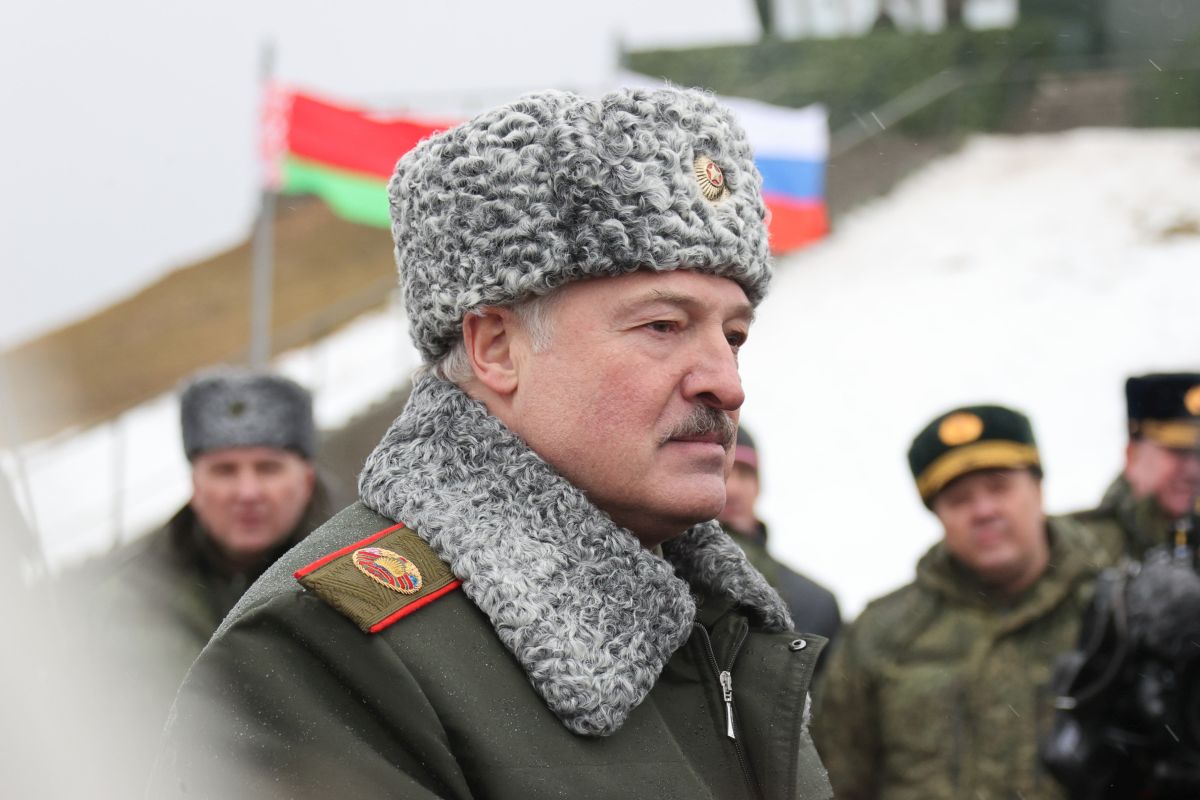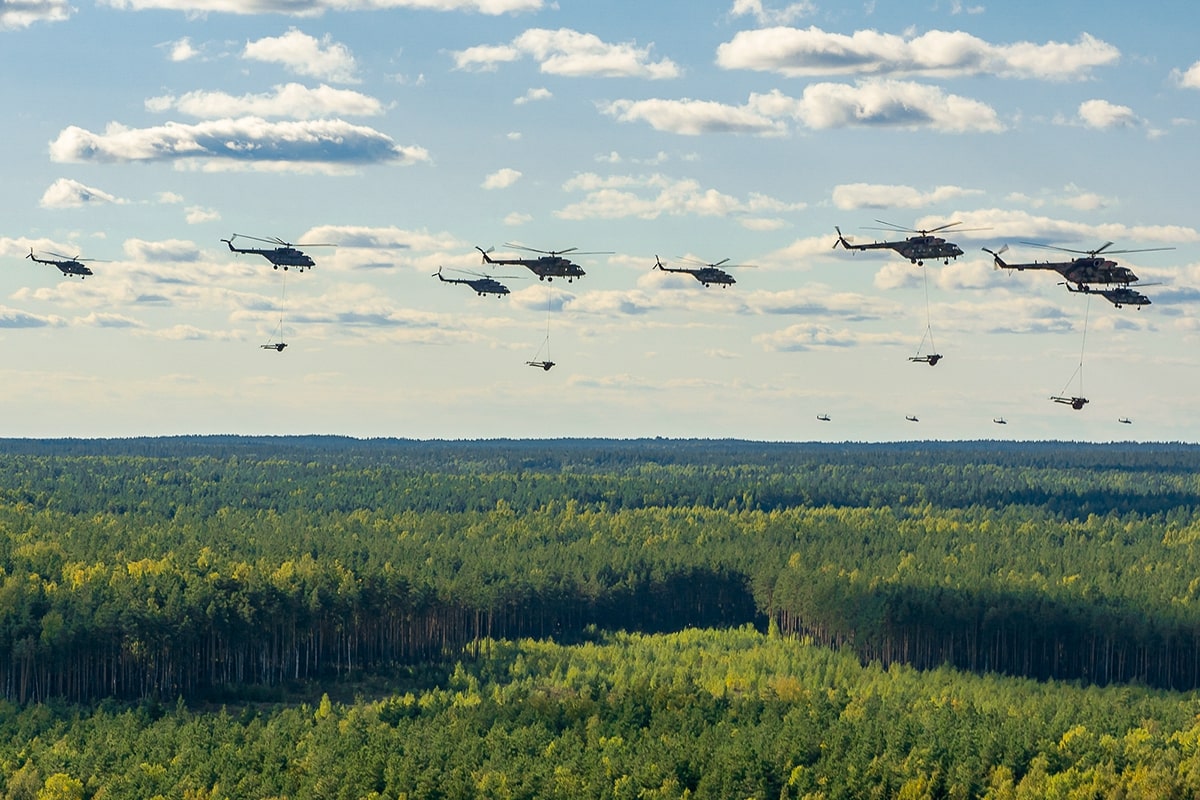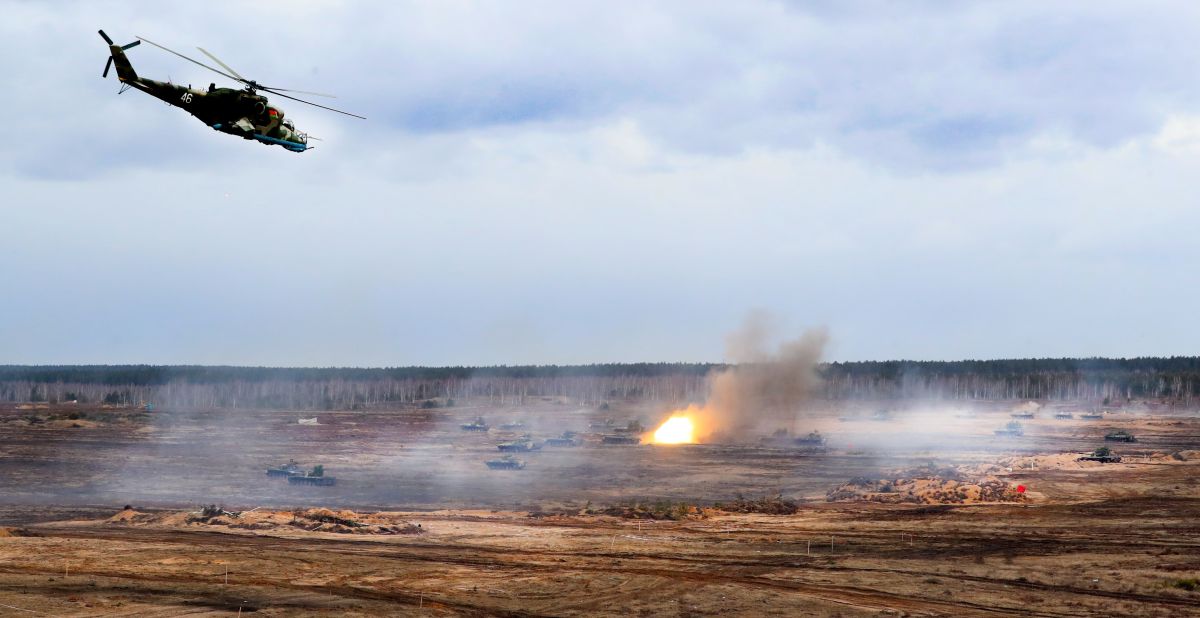Belarus's Reaction to the Russian Invasion of Ukraine
From the very beginning of the Russian invasion of Ukraine, the Belarusian authorities have sided with Russia, supporting it politically and militarily, including making its territory available to the Russian troops. In this way, Belarus is also an aggressor and, as a consequence, the EU and the U.S. have imposed further sanctions on it. Regardless of the attempts to engage in Ukrainian-Russian negotiations, Belarus will be negatively affected by the consequences of its government’s policy and the country, although formally sovereign, has ceased to be perceived as an independent entity in international relations.
 Fot. Sergei Shelega/TASS/Forum
Fot. Sergei Shelega/TASS/Forum
What is the internal situation in Belarus?
Since the presidential elections in August 2020, the Belarusian authorities have been pursuing a policy of repression against their own people. According to data of the Human Rights Centre Viasna, 1,076 people have the status of a political prisoner. Independent media and non-governmental organisations are systematically being liquidated.
On 27 February, voting in a refer.endum on changes to the constitution ended in Belarus, which, according to official data, that cannot be verified, was supported by around 82% of voters, with a turnout of 78.6%.
The most important change seems to be the deletion of the point that Belarus aims to be a neutral and non-nuclear state. It was replaced with a statement that Belarus excludes aggression from its territory to other countries. What is more, the new All-Belarusian People’s Assembly was introduced into the system of state authorities and granted a number of powers, for example, the right to define the most important directions of the state’s development and to approve documents such as the military doctrine and state security strategy.
Despite the repression, many Belarusians protested outside polling stations on the day of the referendum. About 900 people have been detained for participating in anti-war meetings in recent days. Knowledge about the events in Ukraine is wide-spread.
What kind of help does Belarus provide Russia?
The Belarusian authorities have unequivocally supported Russia’s actions in Ukraine. Since January, a significant military contingent—NATO estimates up to 30,000 troops—has been stationed on Belarusian territory, remaining there after the Allied Resolve drills. The Belarusian army provides them with logistics, rear guard, and medical support, as well as air cover.
As officially admitted by Alexander Lukashenka at a meeting of the Belarusian Security Council on 1 March, some Russian units launched an attack on Ukraine—towards Kyiv—from Belarusian territory. Several Iskander missiles were also launched from Belarus against Ukrainian artillery systems stationed in the north of the country, which allegedly was a preventive strike against an attack on Russian troops stationed in Belarus. In addition, Belarus is strengthening its troop concentrations in the south of the country, which increases tensions and raises concerns about the inclusion of these units in military operations in Ukraine.
At the same time, the Belarusian authorities are still trying to play the role of intermediary in the Ukrainian-Russian talks. The first round of talks took place on 28 February in the Homyel region.
What sanctions have been imposed on Belarus?
Because of Belarus’s support of Russia’s invasion of Ukraine, on 25 February the EU imposed personal sanctions on 20 people, mainly high-ranking officers of the Border Service, the Armed Forces, and the Ministry of Defence. On 2 March, another list of sanctions was published. An embargo on the import of mineral fuels to the EU (coal, gas, crude oil) was introduced, the gaps allowing for the import of potassium fertilisers were eliminated, trade in dual-use goods (civil and military) and other products, such as tobacco, were also banned. The list of sanctioned products is 120 pages long.
The U.S. has so far imposed sanctions on two large Belarusian banks, 10 arms companies, and personal sanctions on several people in the security sector, including the defence minister and the chief of the General Staff. Thus, the restrictions have affected the most profitable branches of Belarusian industry.
What will be the consequences of the Belarusian government’s policy?
Since Belarus has allowed its territory for the attack on Ukraine, in accordance with international law, it is an aggressor state. If it becomes directly involved in an operation in Ukraine by sending troops there, for example, further sanctions will be imposed on it, such as disconnection from the SWIFT banking transaction system. Taking into account the harm to the economy of these restrictions, as well as the measures already taken against Russia, on which Belarus is economically dependent, this will exacerbate the country’s economic problems.
The policy of the Belarusian government after the rigged presidential elections in 2020, aimed at deepening economic and military integration with Russia, meant that Belarus can no longer be treated as an independent subject of international relations, but as a vassal state dependent on Russia. Therefore, any Belarusian initiative of talks on the reconstruction of the European security system (such as the idea of “Helsinki-2”) will not be considered. Moreover, due to its participation in the invasion of Ukraine, the isolation of Belarus in the international arena will continue.





